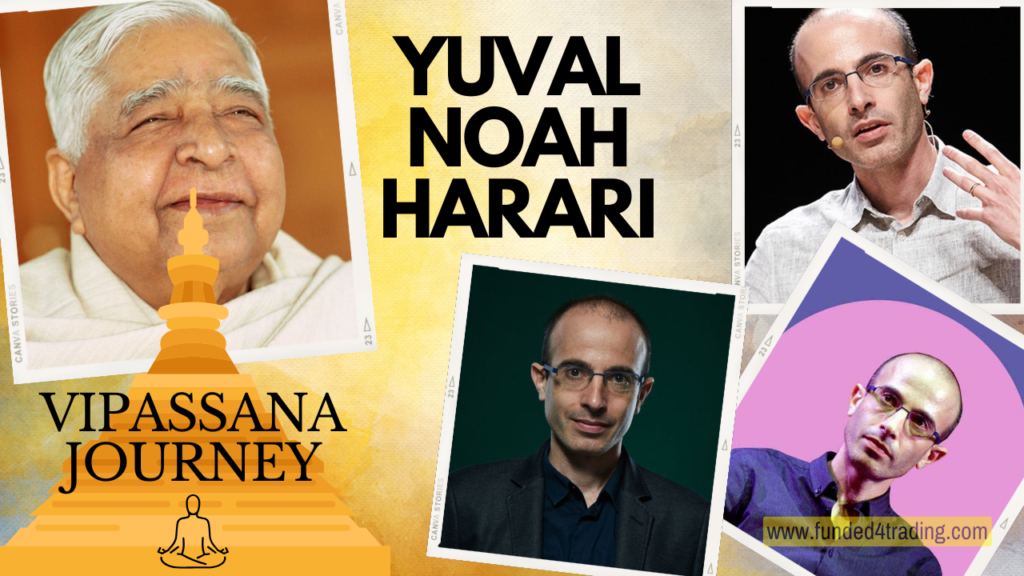Yuval Noah Harari, the renowned Israeli historian and bestselling author, is a name that has become synonymous with intellectual prowess in today’s world. His book “Sapiens: A Brief History Of Humankind” has not only achieved astounding commercial success but has also garnered praise from influential figures like Barack Obama, Bill Gates, and Mark Zuckerberg. Recently, during his Penguin Annual Lecture in Mumbai, Harari attracted an audience so massive that it left the venue overflowing, sparking questions about the nature of his popularity. Is he a hipster intellectual? Is he just Silicon Valley’s latest fad? Or is he delivering cringe-worthy platitudes to explain humanity’s trajectory in a self-help way? The truth, as it often is, is more profound and multifaceted.
In a world inundated with post-truth, fake news, and big data, Yuval Noah Harari has emerged as a beacon of clarity. He has a remarkable ability to take on the most significant questions that challenge humanity and weave together history, philosophy, science, and clear thinking into captivating narratives. What sets him apart from many academics is his knack for making complex ideas accessible and engaging. His work rarely gets bogged down in semantics, allowing readers and listeners to explore profound philosophical concepts with enthusiasm.
In a recent interview, Harari explained his approach to bridging the gap between the scientific community and the general public. He emphasized the importance of making the latest scientific discoveries accessible to everyone, given that science and technology now shape our societies, economies, and personal lives more than any political movement. Harari recognizes that storytelling is a powerful tool for communication, especially in a world where people think in stories rather than facts and statistics.
Harari’s storytelling ability is the key to his success. He understands that the majority of readers aren’t university professors but curious individuals of all ages. When he tackles topics like capitalism, he asks himself if a 17-year-old could understand his explanation. This approach ensures that his work is not just informative but also engaging and relatable.
His willingness to ask the big questions and provide thoughtful answers sets him apart as a philosopher. When asked about the most difficult truth he has faced, Harari highlighted the inherent gap between truth and power. Philosophers often believe that truth can change the world, but Harari recognizes that power relies on mass cooperation, often driven by myths and stories.
Harari’s connection with India and his profound interest in Vipassana meditation have also played a significant role in shaping his success story. While doing his doctorate at Oxford, a friend introduced him to Vipassana meditation, an experience that initially seemed like superstition or a cult. However, after attending a Vipassana meditation course, he realized its practicality. The meditation, which involves focusing on the breath and observing the present moment without judgment, had a profound impact on him. He learned that much of his suffering stemmed from the patterns of his own mind and that suffering is a mental reaction generated by one’s own thoughts.
The 10-day meditation retreat was challenging, as it forced Harari to confront the aspects of himself that he had been avoiding. It provided insights into human nature and the workings of the mind that he had never encountered before. It was a transformative experience that didn’t require him to accept any myth; it simply required him to observe reality as it is.

Harari’s advice for those interested in meditation is to approach it with seriousness and an understanding that it can be hard work. Finding a good teacher is crucial, and individuals should not expect special experiences but should focus on getting to know themselves better and accepting reality as it is.
As for the greatest challenge and luxury of our age and time, Harari believes that our greatest luxury is our relative freedom from famine, plague, and war. We now face challenges like obesity, old age, and accidents rather than the existential threats of the past. However, the most complicated challenge is posed by disruptive new technologies. Harari stresses the need for global cooperation in formulating ethical guidelines for these technologies, as they have the potential to change the very nature of humanity.
In conclusion, Yuval Noah Harari’s success story is a testament to his ability to bridge the gap between complex scientific ideas and the general public through storytelling. His exploration of Vipassana meditation has also shaped his perspective and contributed to his intellectual journey. As we navigate the challenges and luxuries of our age, Harari’s insights serve as a valuable guide to understanding and addressing the profound questions that confront us in the 21st century.


